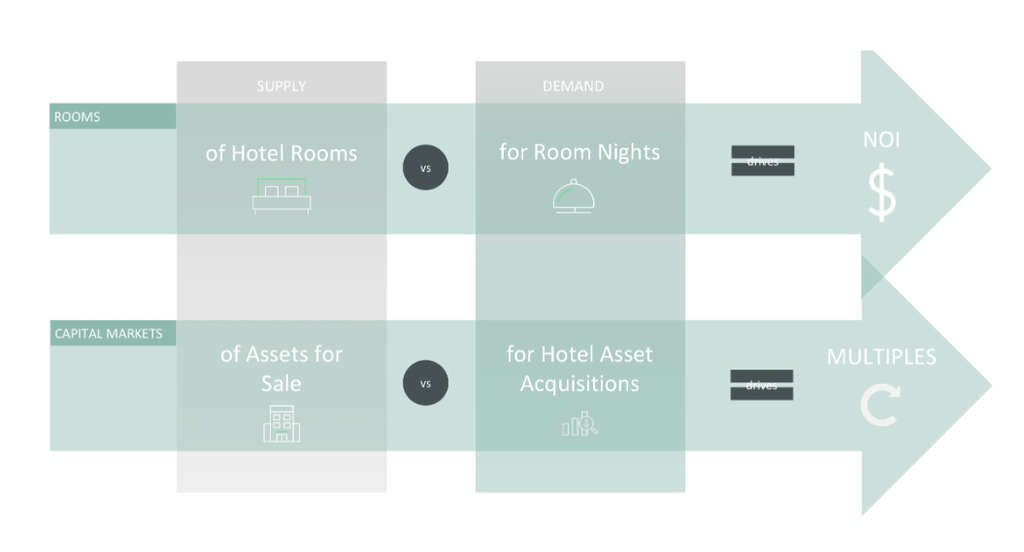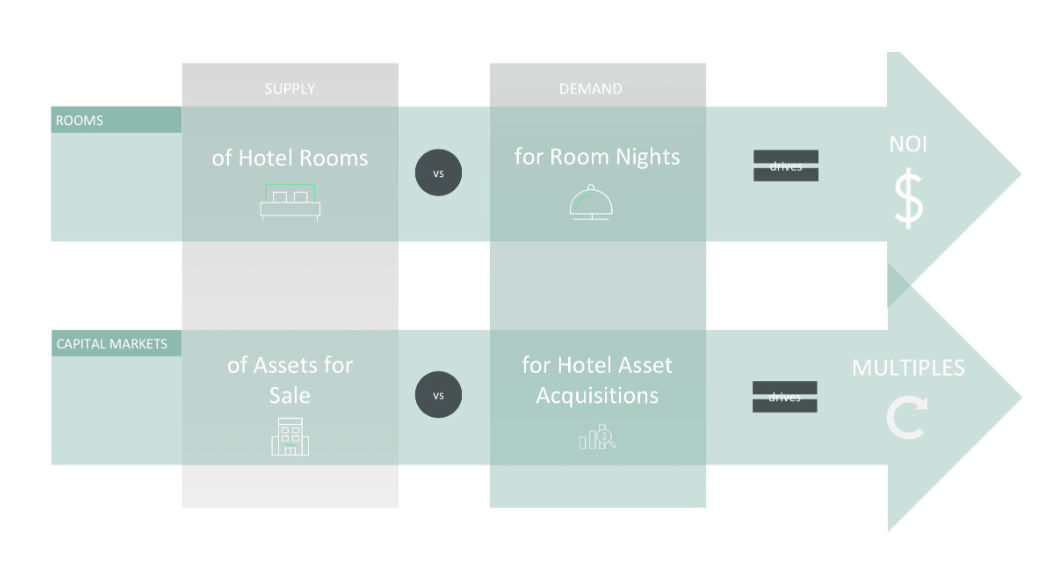Econ 101 Drives Hotel Value - CBRE Market Perspective
Statistically, this challenging period in the hotel market is summarized below:
Year-to-date, hotel transaction volume through October of 2023 is down more than 52% from 2022. Not since 2020, and 2009 before it, has market transaction activity declined so dramatically from one year to the next, and this dramatic decline is coming off of what was already a down year in 2022. Year-to-date 2023 hotel transaction volume recorded by RCA is at only $20 billion vs $42 billion same time last year.
Econ 101 Drives Hotel Value
Why is transaction volume off so dramatically? There is a severe imbalance in the bid-ask spread. Let’s look at the signal in the noise of what dictates a buyer or seller’s market and subsequent bid-ask spread dynamics. Fundamentally, there are two levels of supply and demand that create and influence hotel values. As illustrated above, the first level of supply and demand in hospitality is the supply of and the demand for rooms. This drives the revenue that then creates the net operating income used to compute the value of any asset. This level of supply and demand produces our industry performance fundamentals.
The second level of supply and demand is the supply of assets for sale and the demand for those assets.
Basically, this level is driven by capital market fundamentals and sentiment that generate the multiple that is then applied to the income that then derives a hotel’s value.
Sellers’ markets typically occur when both levels of supply and demand are robust creating a narrow bid-ask spread. Transaction volume is high in these markets as are hotel values. Buyers’ markets typically occur when both levels of supply and demand are in decline creating a battle between bid-ask creating an opposite impact to transaction volume and hotel values. What’s perplexing about market conditions today is that industry fundamentals remain positive, yet capital market fundamentals have deteriorated; essentially both levels of supply and demand have decoupled when usually industry fundamentals create the sentiment in the other.
As a long-time student of the hotel real estate market, any time I have seen a decoupling of industry and capital market fundamentals, it is either predictive of bad things to come relative to industry fundamentals or irrational investor behavior. My view today is that our industry is battling the latter although I am sympathetic to the confluence of pressures causing it: wars, recessionary threat, a real estate industry in turmoil, a controversial upcoming presidential election, and debt-driven friction - all headwinds that crescendo into a risk-off deafening malaise of noise. But the profound reality despite these headwinds and others is that there is a significant supply-demand imbalance at the core of our industry, which is likely to produce outsized increases in net asset value in this next cycle. Despite this, buyers have taken a risk-off, wait-and-see approach during what I consider to be one of the better decoupled buying markets in quite some time.

